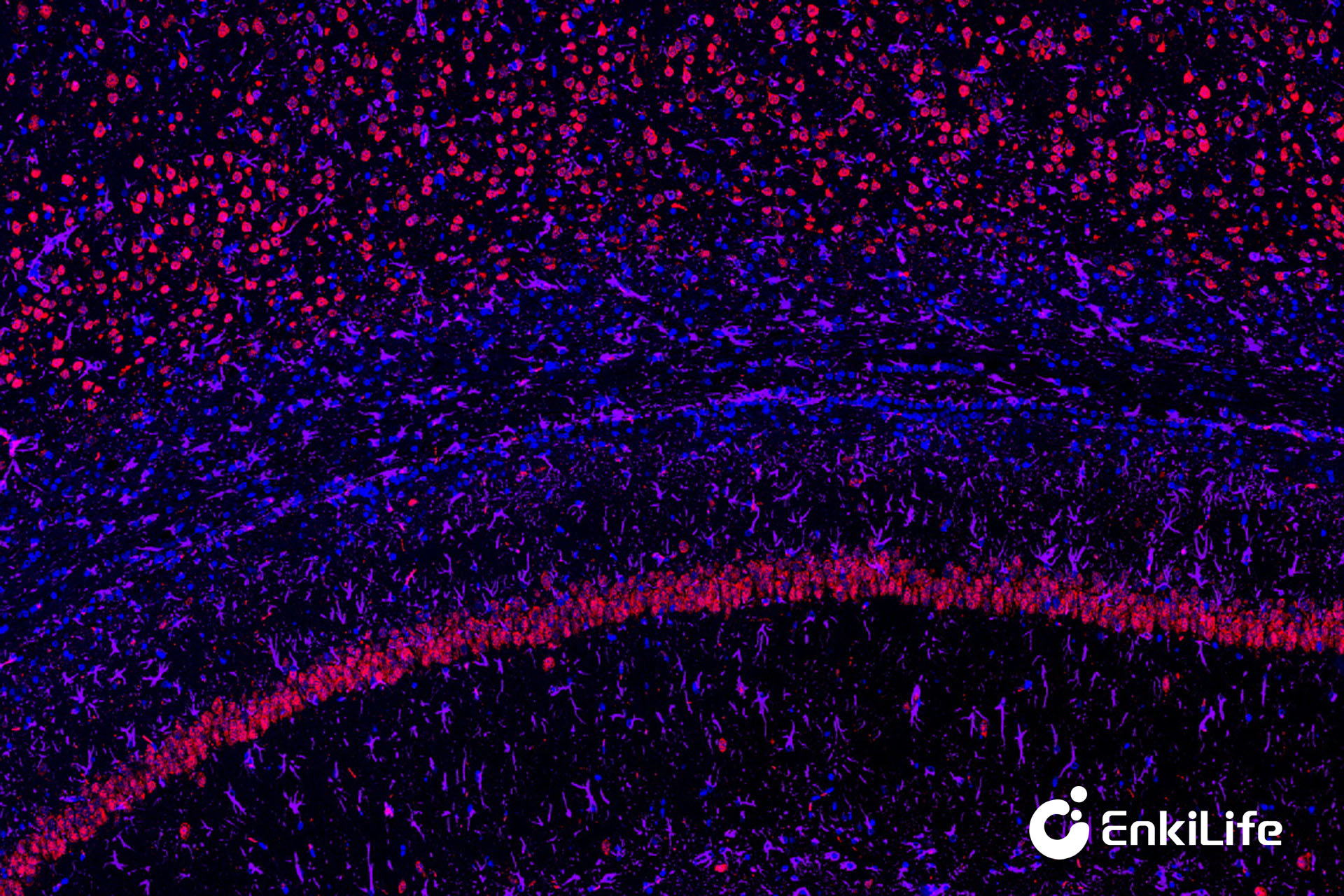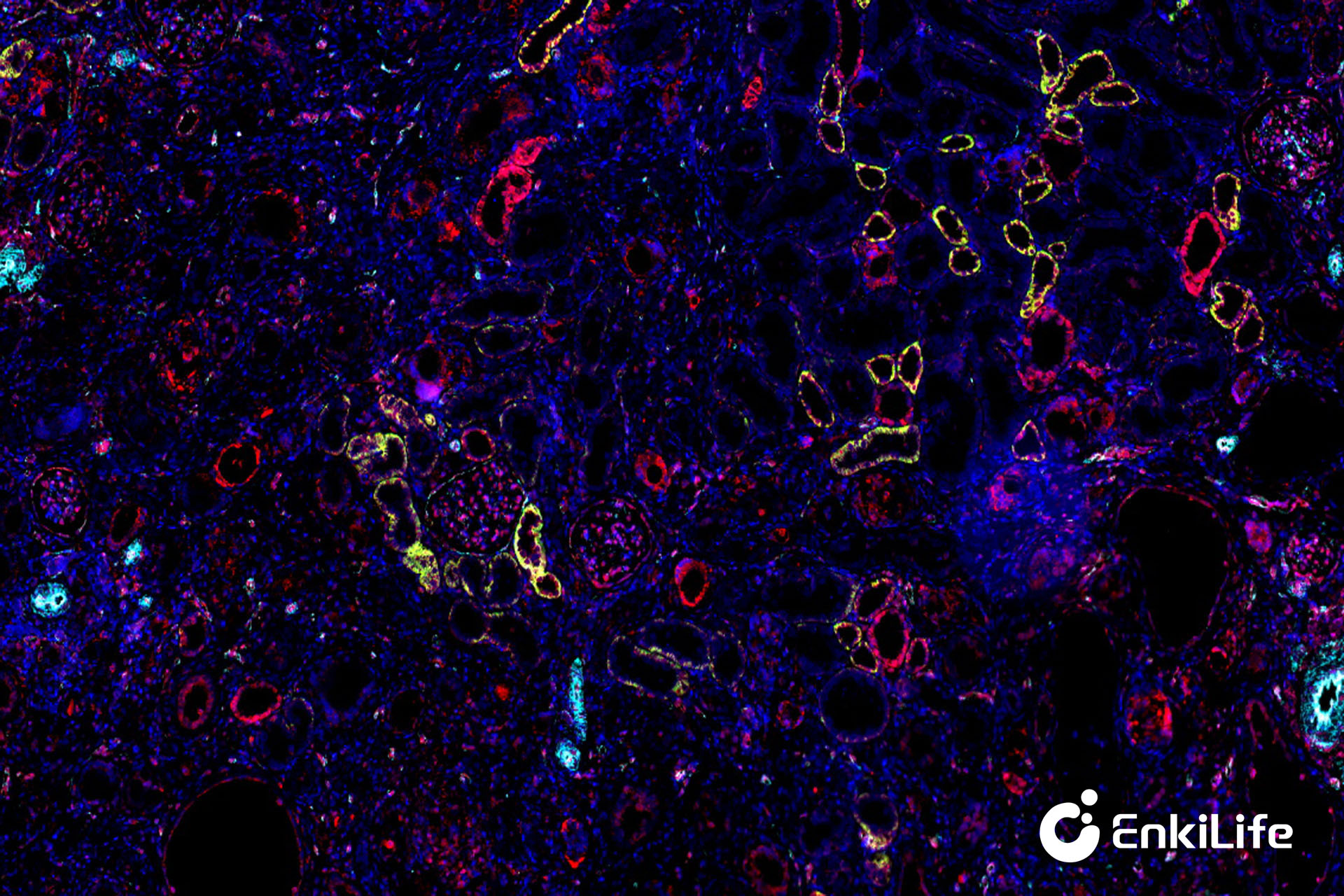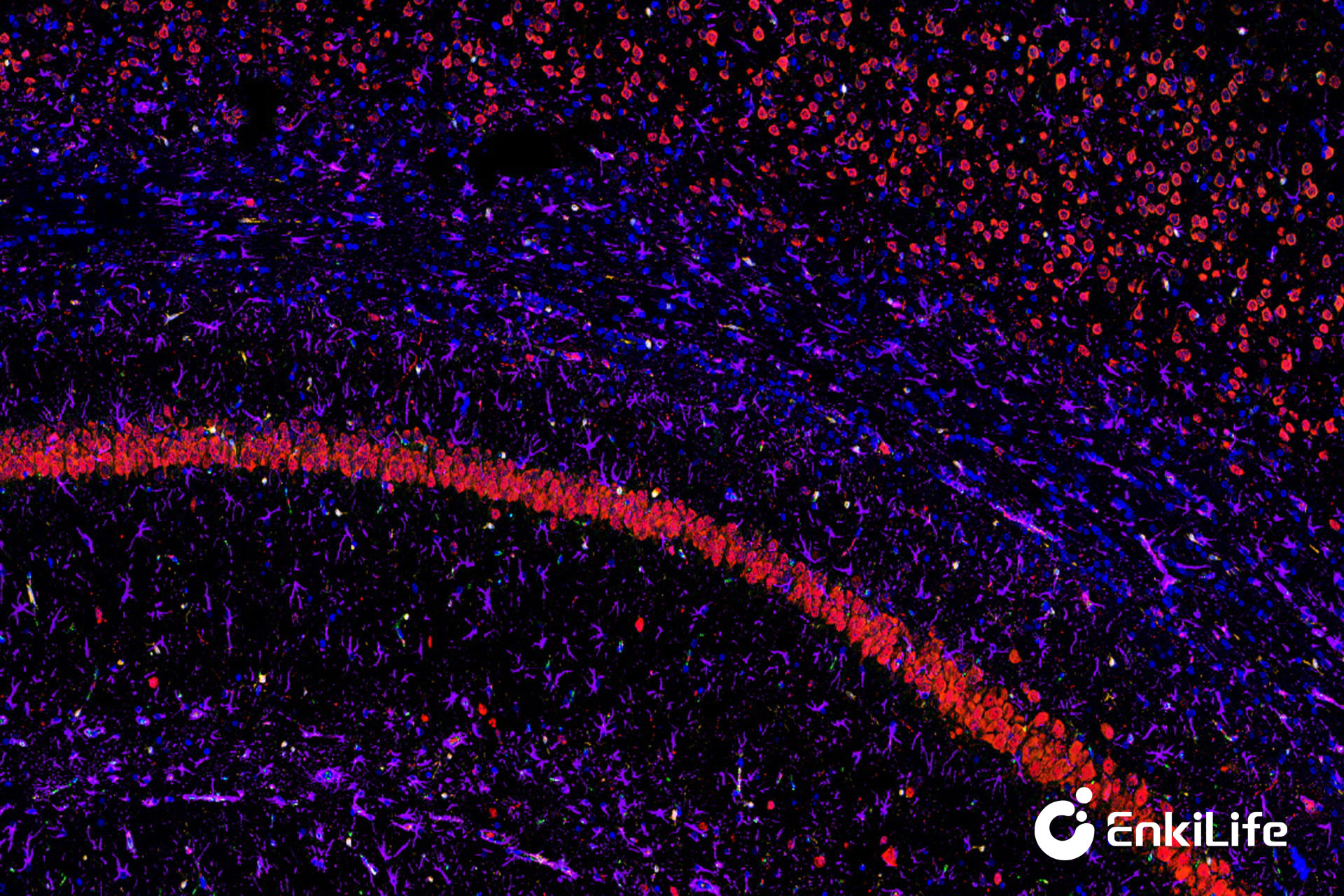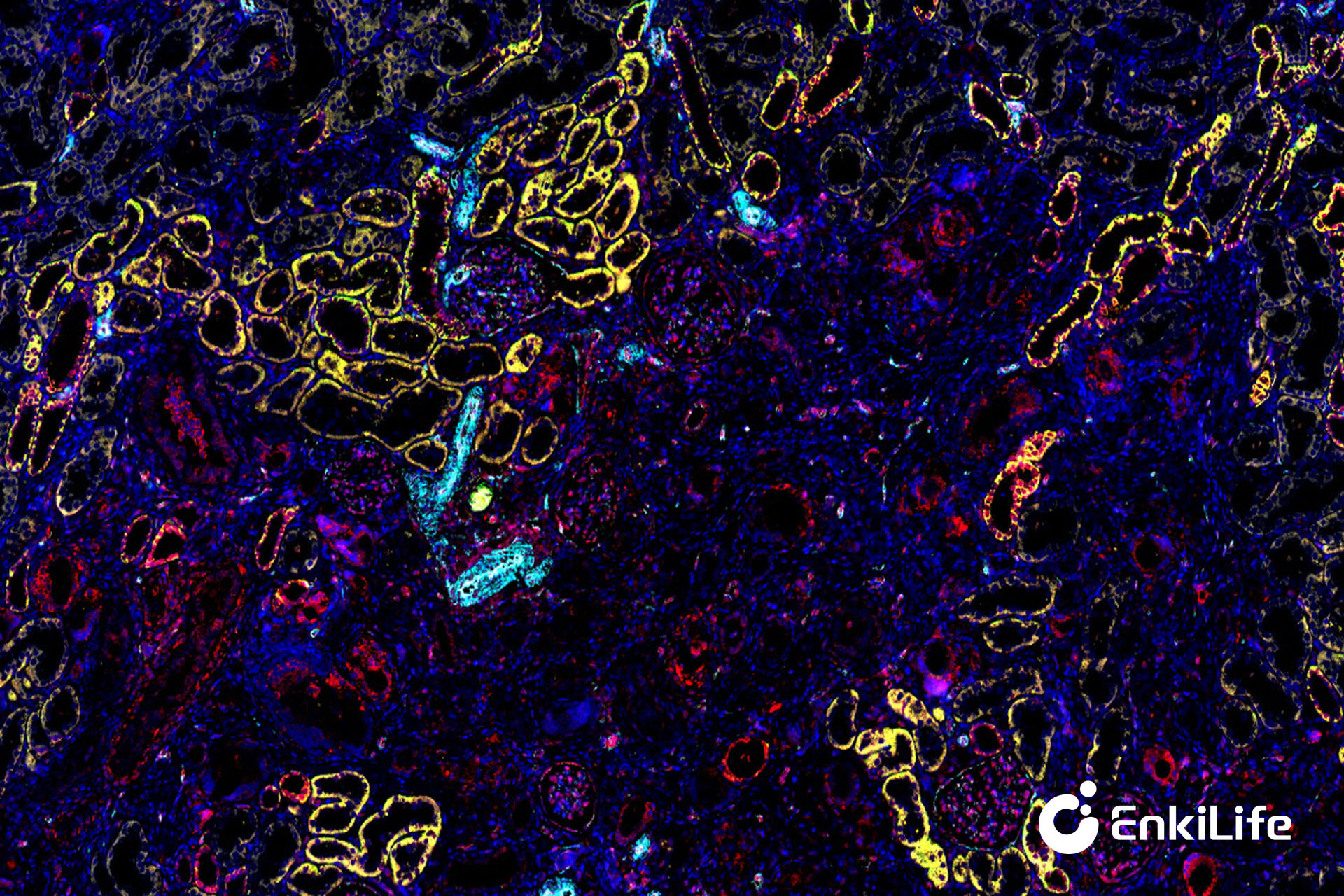Product Introduction
This 6-Color Multiple Fluorescent Staining Kit (mIHC) is suitable for multiplex immunofluorescence staining of tissue samples, including paraffin sections, frozen sections, cell slides, cell smears, and organoids. It is particularly suitable for multiplex fluorescent immunolabeling using primary antibodies from the same source, but can also be used with antibodies from different sources. The primary principle of TSA is based on tyramide signal amplification (TSA), hereinafter referred to as TSA technology. TSA utilizes the peroxidase reaction of tyramide (wherein a fluorescently labeled tyramide forms a covalent binding site under the catalysis of HRP and H₂O₂). This generates a large number of enzymatic reactions, which then bind to surrounding protein residues (including tryptophan, histidine, and tyrosine residues), forming a large amount of fluorescent deposits at the antigen-antibody binding site, thereby amplifying the signal. This kit uses multiple fluorescent dyes to label tyramide, resulting in strong fluorescence and stable signals, making it suitable for repeated immunolabeling and multiplex fluorescent staining.
Product Information
Product form | liquid |
Product Specifications | 20T, 50T, 100T |
Storage conditions | 2-8℃ |
Conditions of Transport | Low temperature |
Validity period | 12 months |
Components | Sizes | Dilutions | ||
20T | 50T | 100T | ||
TSA-CY3 | 10μL | 25μL | 50μL | 1:200 |
TSA-FITC | 10μL | 25μL | 50μL | 1:200 |
TSA-680 | 10μL | 25μL | 50μL | 1:200 |
TSA-430 | 10μL | 25μL | 50μL | 1:200 |
TSA-594 | 10μL | 25μL | 50μL | 1:200 |
TSA diluent | 10mL | 25mL | 50mL | Ready-to-use |
3% H₂O₂ | 2mL | 5mL | 10mL | Ready-to-use |
Blocking solution | 10mL | 25mL | 50mL | Ready-to-use |
Primary antibody diluent | 10mL | 25mL | 50mL | Ready-to-use |
Antibody elution reagent | 8mL | 20mL | 40mL | Ready-to-use |
HRP-goat anti-rabbit/mouse IgG | 10mL | 25mL | 50mL | Ready-to-use |
DAPI staining | 2mL | 5mL | 10mL | Ready-to-use |
Anti-fluorescence fading mounting medium | 2mL | 5mL | 10mL | Ready-to-use |
Fluorescein Information
Fluorescein | Ex (nm) | Em (nm) | Color | Filters |
TSA-FITC | 490 | 520 | green | FITC channel |
TSA-CY3 | 550 | 570 | orange-red | CY3 channel |
TSA-680 | 680 | 700 | deep red | CY5/CY5.5 channel |
TSA- 430 | 430 | 480 | Aqua | Aqua channel |
TSA-594 | 590 | 620 | red | Red channel |
Precautions
1. Selection of primary antibodies
1.1 Primary antibodies should preferably be monoclonal antibodies, followed by polyclonal antibodies;
1.2 If the sample is mouse, try to avoid choosing mouse-derived primary antibodies. If you choose a mouse primary antibody, the secondary antibody will not only bind to the primary antibody but also to endogenous IgG in the tissue, resulting in nonspecific staining.
2. If the tissue is prone to falling off, it can be repaired in a 60°C water bath.
3. Compared to fluorescent secondary antibodies, TSA kits offer higher sensitivity and stronger signals. Therefore, the primary antibody concentration should be lowered. Generally, the dilution factor should be increased appropriately based on the recommended dilution ratio in the antibody datasheet to reduce background fluorescence caused by nonspecific binding. A gradient of primary antibody concentrations is recommended for optimal results.
4. If the background fluorescence is strong, it is recommended to add a tissue autofluorescence quenching step.
5. To ensure the effectiveness of antibody elution and fluorescent multiple labeling, it is recommended to perform TSA single-labeling tests on each antibody before formal multiple labeling. After confirming that each antibody single-labeling can produce a relatively ideal positive result, the antigen retrieval conditions, antibody sequence and other experimental conditions of the multiple labeling can be determined based on the single-labeling test results.
6. If some antibodies have high titers and strong affinities and are difficult to elute completely, the elution times can be increased.
7. The antibody elution solution has strong fluidity. If the slide is not placed horizontally, the reagent will easily flow out of the circle, affecting the elution effect. It is necessary to pay attention to placing the slide flat during the operation.
8. Wear gloves, masks, and lab coats during operation to avoid contact between the reagents and skin and eyes. If the reagents accidentally come into contact with sensitive areas, rinse immediately with plenty of water.






